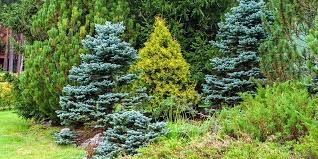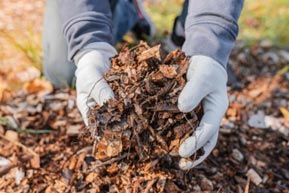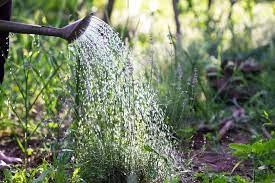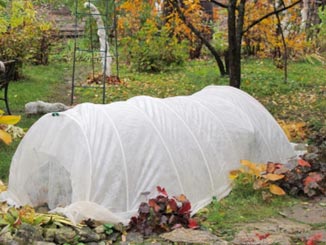Surviving Winter: 5 suggestions for keeping your garden healthy

The start of winter always seems to have a sense of melancholy about it. The warm, sunny days of summer and fall are over, taking with them the beautiful flowers and vegetables of your cultivated yard. And we anticipate icy blasts of sleet and snow with dread. But with the proper preparation, your garden can still flourish in colder temperatures and prepare for a renewal in the spring. Here are some tips to help you keep your garden alive and thriving even during the winter months.
Choose Plants That Are Suited to Your Soil and Weather

If you love the bright, colorful flowers that we associate with spring and summer, winter may seem a time when your garden seems to be devoid of life. But there are many trees, shrubs and plants that survive and flower even in cold weather. Evergreens, holly and winter-flowering plants, such as pansies and winter jasmine, can add color and texture to your yard despite colder temperatures. Native plants are also well-adapted to local weather conditions and can thrive with minimal care.
Take Extra Care of Your Garden in the Winter

Investing a bit of time and effort to care for your plants now will pay dividends in the spring and summer. Begin by removing any dead or diseased plants to prevent the spread of pests and disease. But avoid heavy pruning. Pruning stimulates new growth that may not have time to harden before the weather turns cold. Move delicate or potted plants indoors for the winter months or to a protected area to shield them from harsh weather.
Mulching Will Help Protect the Soil

Apply a thick layer of mulch around the base of your plants to help insulate the soil in order to adjust temperature and moisture levels. Remember, soil can freeze in the winter and then thaw. Using organic material like straw, leaves and wood chips in the mulch will help to regulate these changes.
Plants Need Water Even in Winter

Before the ground freezes over, water your garden thoroughly to ensure that all the plants have enough water to survive the winter months. But make sure that you don’t over-water. When the soil is waterlogged it can result in root rot. It’s a good practice to water early in the day and allow any excessto evaporate before evening.
Protect Sensitive Plants from Frost

Frost can be very damaging to plants. So, cover delicate species with frost blankets, burlap or plant covers when the nights turn very cold. Covering the plants not only keeps the frost off them but also helps to retain heat from the soil to warm them. Just make sure to remove the covers in the morning to prevent condensation from forming on their leaves.
With Just a Little Care, Your Garden Can Be Beautiful All Year

We hope these tips will help you extend the life and beauty of your garden. While you may not spend sunny afternoons outside in January and February, you can still enjoy the sight of healthy plants from your windows. If you have any questions or concerns, please give me a call for advice or help with your garden.
Happy Thanksgiving!
Curt




